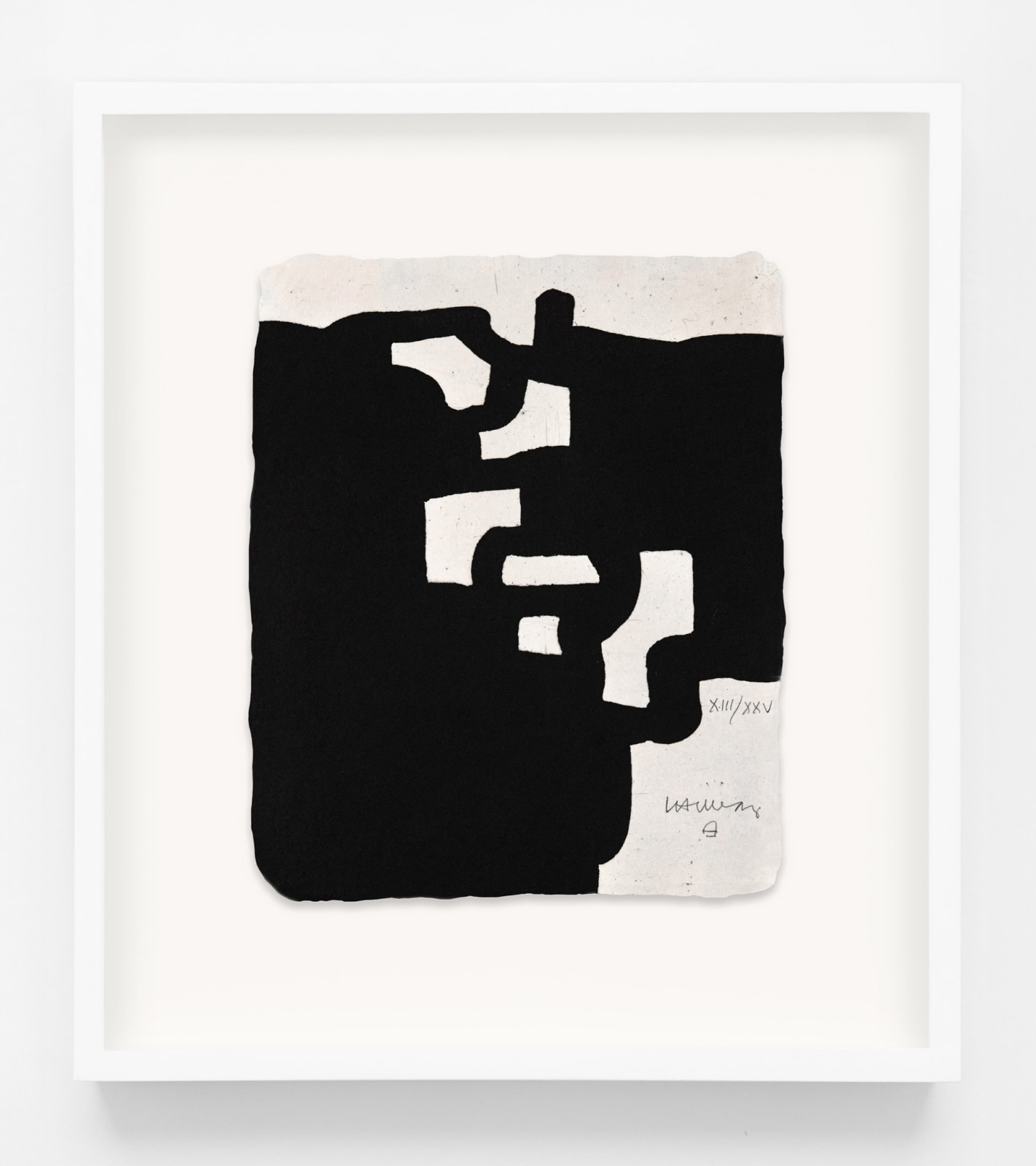-
Eduardo Chillida
Batz, 1984Etching on Segundo Santos paper7 5/8 x 6 1/4 in (19.5 x 16 cm)Edition of 25, plus 10 AP© 2025 Artists Rights Society (ARS), New York / VEGAP, Madrid. Courtesy of Zeit Contemporary Art, New York.$ 20,000.00Further images
Eduardo Chillida's 1984 etching ‘Batz,’ meaning ‘together’ in Basque, manifests a poetic confluence of form and theme that subtly reflects the burgeoning spirit of unity and democracy in Spain during...Eduardo Chillida's 1984 etching ‘Batz,’ meaning ‘together’ in Basque, manifests a poetic confluence of form and theme that subtly reflects the burgeoning spirit of unity and democracy in Spain during the early 1980s. The artwork, executed on the tactile surface of handmade paper by Segundo Santos, uses blunt black and white areas to craft a visual metaphor for societal cohesion. Chillida’s composition, characterized by bold black shapes dissected by gleaming white voids, evokes a sense of interconnectedness, with each form contributing to the integrity of the whole. This interplay mirrors the collective effort in Spain's transition to democracy, where diverse voices found strength and harmony in unity.The intimate scale of the etching, measuring merely 7 5/8 x 6 1/4 in (19.5 x 16 cm), intensifies the viewer's engagement with the texture and depth of the artwork. Chillida's choice of Segundo Santos's handmade paper as his medium adds an elemental, almost primal quality to the work, emphasizing the elemental, foundational aspects of togetherness. The fibrous quality of the paper, combined with the tactile nature of the etching process, invites a personal encounter, drawing parallels to the grassroots movements that marked Spain’s democratic revival. This intimate etching serves as a poignant reminder that the essence of democracy lies in the contribution of each individual part to the functioning of the whole.
In ‘Batz,’ Chillida encapsulates a moment of historical and cultural significance through abstract symbolism, reflecting the ethos of a nation rediscovering its unity. As the viewer contemplates the interlocking shapes, they are reminded of the essential human connections that underpin both art and democracy. Through ‘Batz,’ Chillida not only contributes to the visual arts but also participates in the broader dialogue about societal structures and their transformations. This work stands as a testament to the power of collective endeavor and the enduring search for balance and harmony within the human spirit.
NOTES
This artwork is signed and numbered in pencil.
Published by Galerie Maeght - Lelong, Zürich, printed at Taller Hatz, San Sebastián.Provenance
Private collection, Europe
Private collection, New York
Literature
Martin Van Der Koelen. Eduardo Chillida: Opus P.II: Catalogue Raisonné of the Original Prints, 1973-1985. Munich, 1997, cat. no. 84004, p. 346-347 (illustrated in color).






